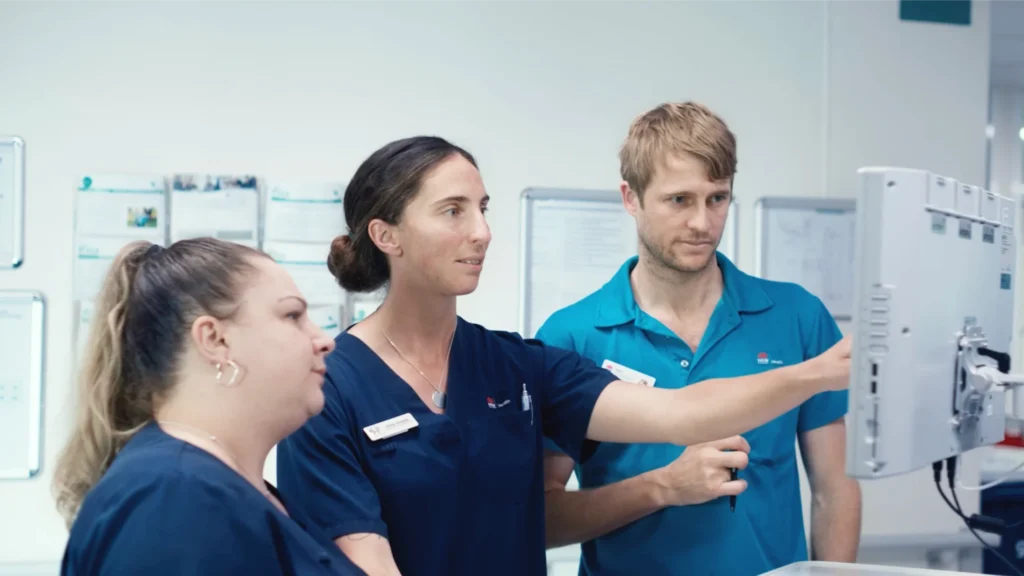
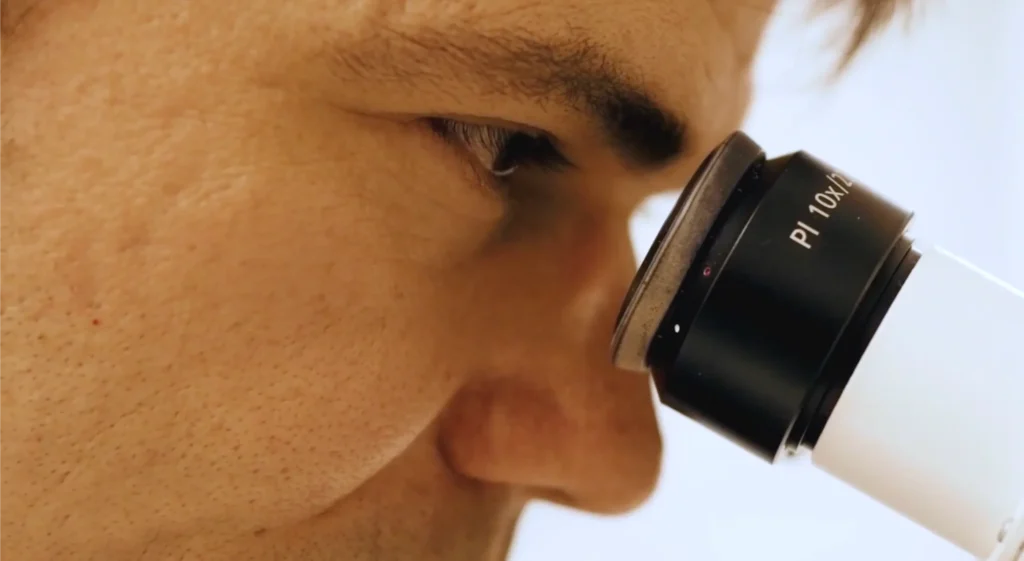
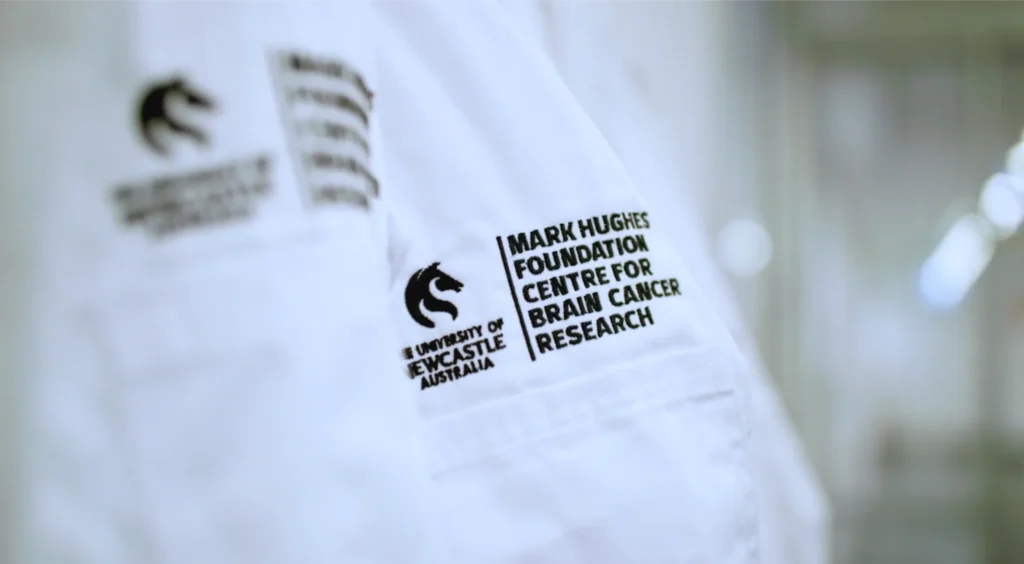
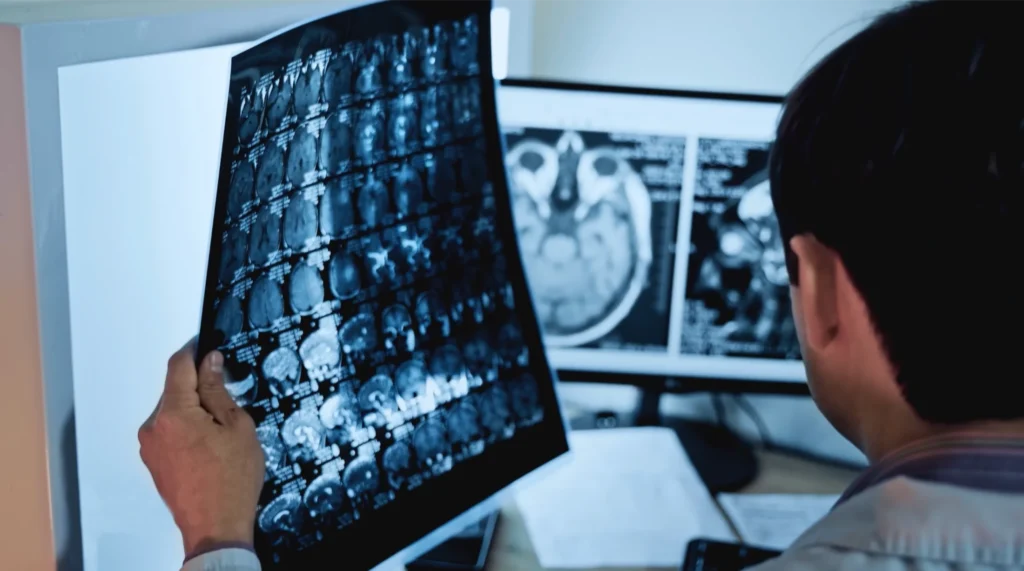
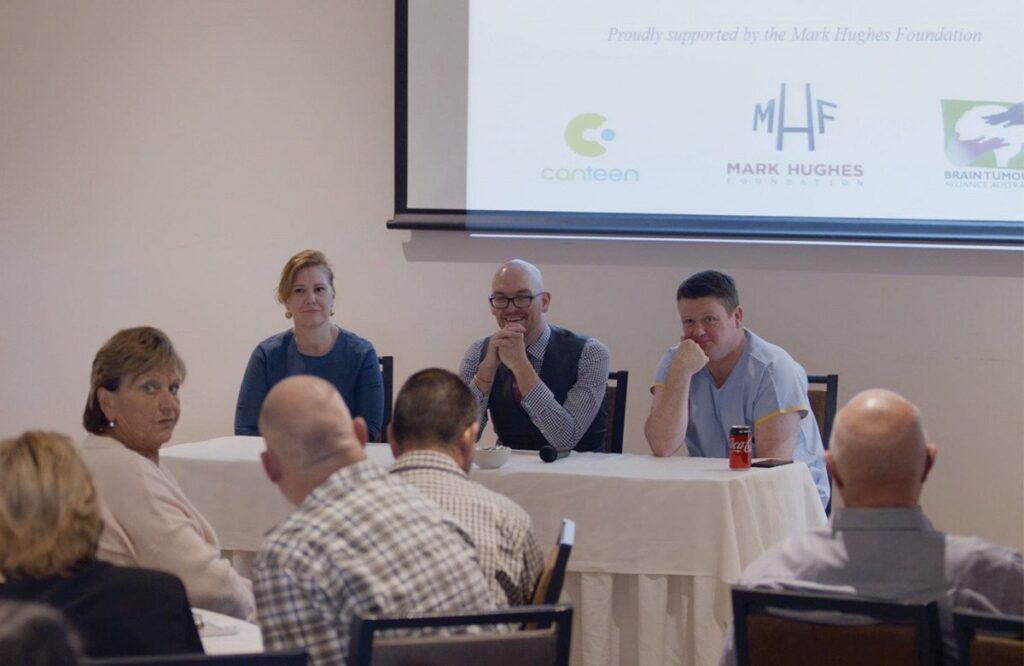


Mark Hughes Foundation and the University of Newcastle announce new $25 million Centre for Brain Cancer Research with Professor Michael Fay appointed as Foundation MHF Chair in Brain Cancer and Director of Centre.
The greatest minds that are fighting the frontline battle against brain cancer will be brought together as the new Mark Hughes Foundation Centre for Brain Cancer Research at the University of Newcastle, is officially announced Monday, June 27.
An exciting step forward for brain cancer research in Australia, the Centre’s dedicated brain cancer team will drive critical research, education, and health care improvements at a national scale for brain cancer patients, their families and carers, and health professional.
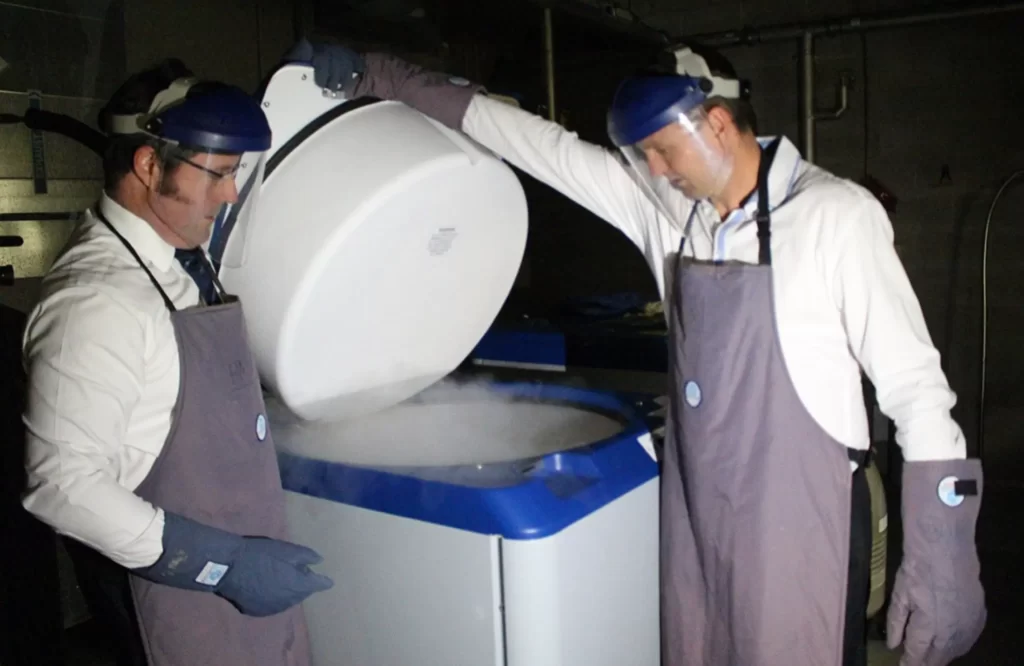
For brain cancer researchers, a major obstacle to biomarker driven research is limited access to brain cancer tissue for research purposes. The Mark Hughes Foundation Brain Biobank is one of the first post-mortem adult brain banks in Australia to operate with protocols specifically developed for brain cancer.
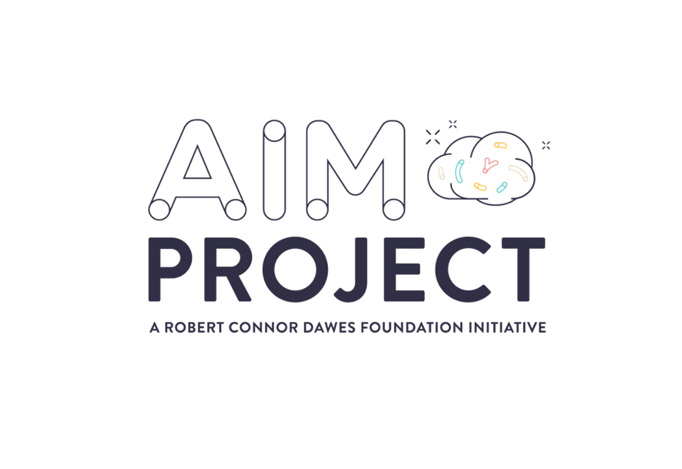
Recent advances in technology have shown that the traditional ways of classifying brain tumours were only telling part of the story. Researchers know that there is more powerful information hidden in the genes that reveals several distinct sub-types, each with different disease characteristics and importantly survival outcomes.
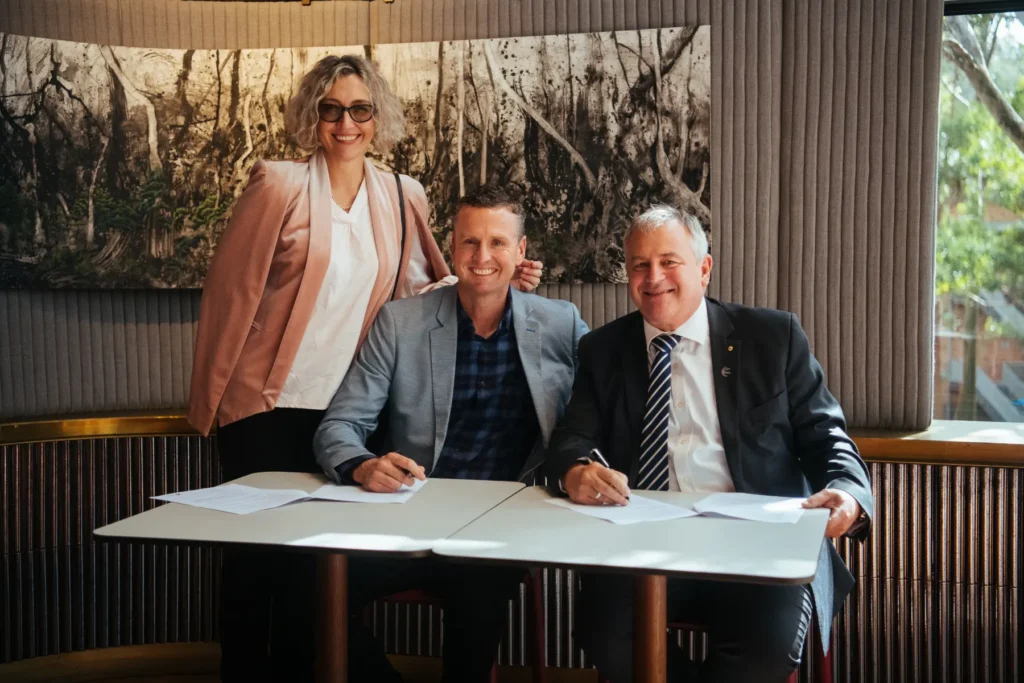
With the MHF funding commitment, the University of Newcastle will support a dedicated brain cancer team to drive critical research, education and health care improvements at a national scale for brain cancer patients, their families and carers, and health professionals. The team will be led by the inaugural Mark Hughes Foundation Chair in Brain Cancer, who will be recruited through a global search.
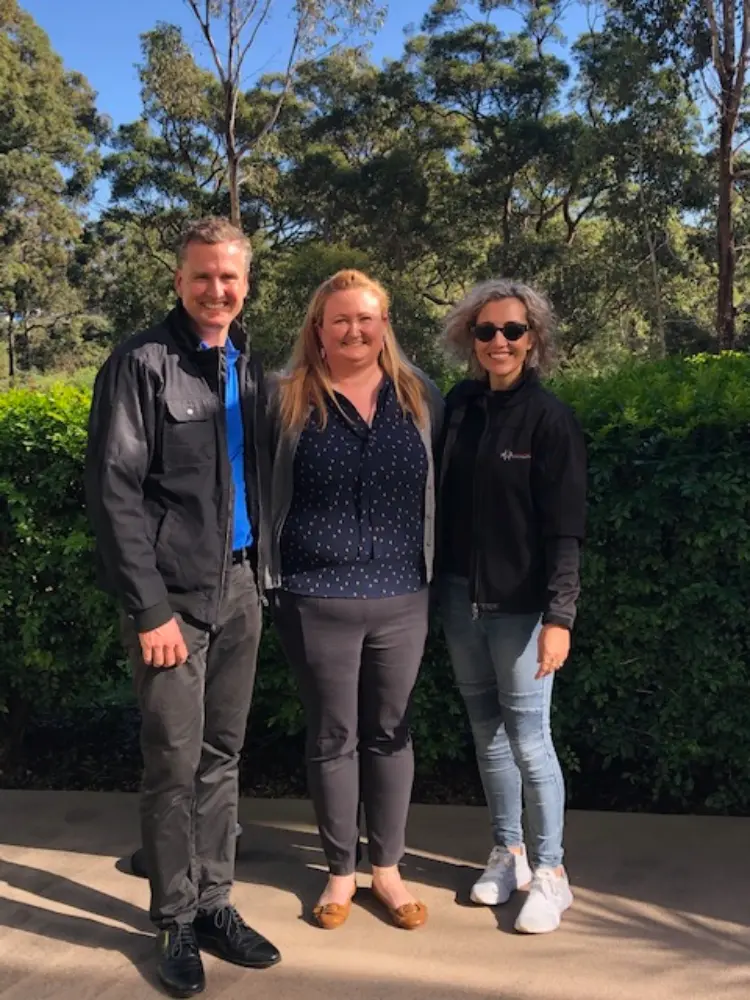
The Mark Hughes Foundation (MHF) is very proud to announce the placement of two new Brain Cancer Care Co-ordinators, the positions funded by money raised from the MHF trek to Mt Kilimanjaro in October last year.
Nurses Nicole Allen, based at Port Macquarie Hospital and also visiting Coffs Harbour, along with Natasha Malcolm who is based in Tamworth also covering Armidale, have both commenced work in a three year fully funded position.
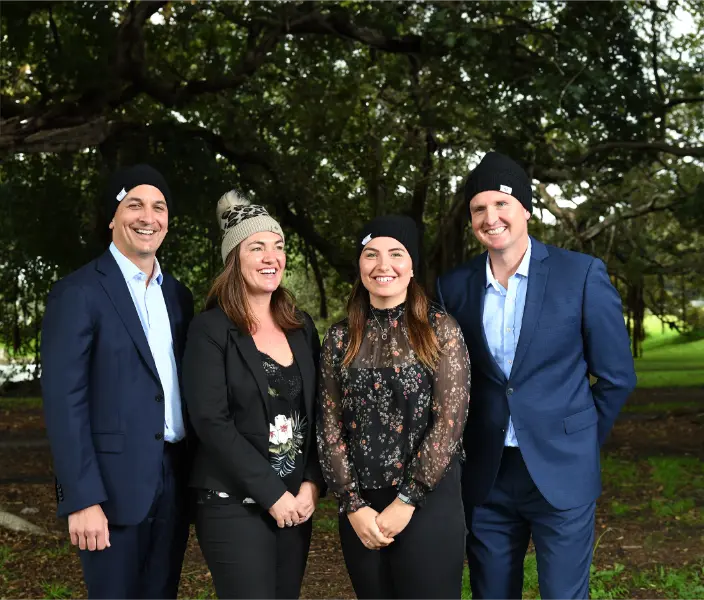
The HMRI Early to Mid-Career Research Fellowship Scheme attracted strong, nationwide interest from early-to-mid career researchers with promising, high quality research in brain cancer research.
After a highly competitive process, Dr Julius Woongki Kim from the Children’s Medical Research Institute at the University of Sydney was awarded the Fellowship to develop emerging anti-tumour therapies for patients with high-grade glioma (HGG).
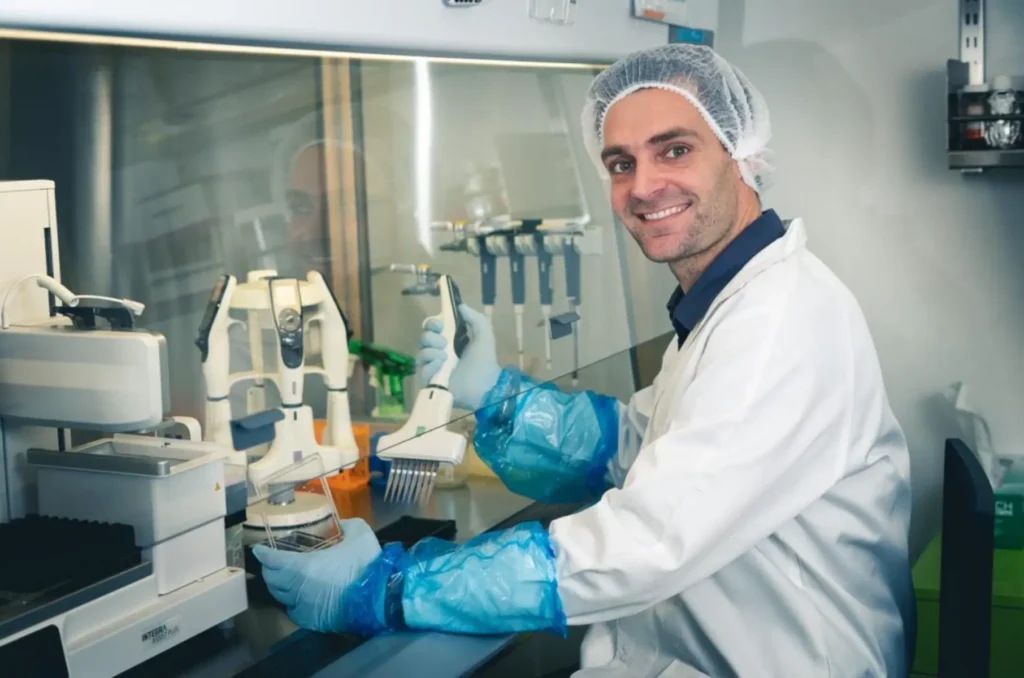
The project, Glioblastoma: Determining how the molecular microenvironment of the human brain influences cancer progression and treatment efficacy has received more than $574,000 through the Mark Hughes Foundation (MHF), an Australian Brain Cancer Mission Funding Partner.

Medical researchers from around Australia will benefit from the research grants announced by the Mark Hughes Foundation at the Hunter Medical Research Institute Annual Awards Night.
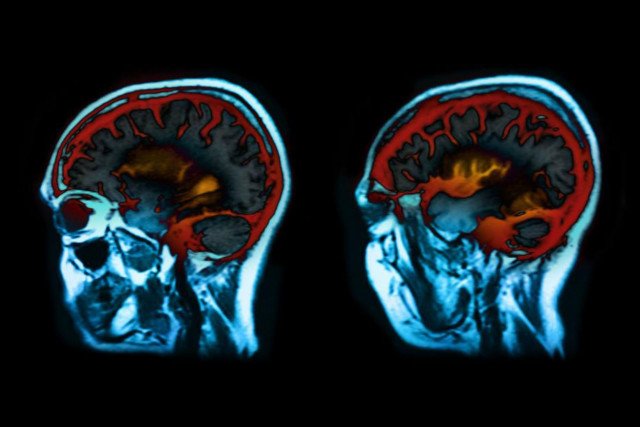
Five highly innovative brain cancer research projects have received more than $725,000 in funding from the Mark Hughes Foundation (MHF) following a nationwide call-out and scientific review by experts in the field.
The recipients were revealed at Sydney’s Kolling Institute today, with guests including NRL Chief Executive Todd Greenberg, the Callander family and representatives of Channel Nine and Fox Sports to recognise rugby league’s support for the 2018 MHF Beanie Round.
MHF co-founder Mark Hughes says the inaugural Brain Cancer Innovation Project Grant Rounds will be conducted over one to two years, with the ultimate aim of solving the riddle of brain cancer.
“We wanted to award funding to big thinkers who could knuckle down and tackle this insidious disease,” Mark Hughes said.
“We would like to acknowledge the NRL for embracing the Beanie for Brain Cancer campaign and the support of all involved that has made this happen. $5 million has been raised over the last two years during the NRL Round which is a huge factor in these grants being awarded today” said Mark.
NRL Chief Executive Todd Greenberg said announcements like this make the immense support for Beanie Round all the worthwhile.
“These innovation grants to help find a cure for brain cancer would not have been possible without the generous support of the rugby league family over the past few years,” Mr Greenberg said.
“I look forward to the game getting behind Beanie for Brain Cancer once again in Round 19 this season, as much as we look forward to hopefully finding a cure for this hideous disease in the very near future.”
The five recipients of the Innovation grants, presented by Anne Callander, the wife of the late executive producer of Channel Nine Matt Callander, are as follows:
Professor Hubert Hondermarck, from HMRI and the University of Newcastle, will receive almost $150,000 to explore a novel form of cancer research known as cancer neurobiology. He and his team will build on their work exploring the role of neurons in prostate, breast and thyroid cancers and transfer their knowledge to glioblastoma – a unique brain cancer.
Patient survival rates for glioblastoma have been stagnant, highlighting the need for new thinking.
Dr Julius Woongki Kim from the Children’s Medical Research Institute in Sydney who is working on a novel treatment approach to high grade glioma (HGG) – the most aggressive form of brain tumour. The team will bioengineer Dendritic Cells, which are part of the normal immune system and work to ‘patrol the body and identify abnormally-acting cells’.
Dr Fatemeh Vafaee, from the University of New South Wales, and her team will harness the power of artificial intelligence and cutting-edge computational modelling to identify patterns of change in gene activities in patients with glioblastoma. The aim is to identify any signifiers pointing to tumour recurrence to optimise quality of life and survival.
Dr Jonathan Goodwin from Calvary Mater Newcastle and his team are exploring glucose metabolism in head and neck cancer patients using a novel magnetic resonance imaging (MRI) based approach. This project aims to accurately and non invasively measure glucose measurement in brain cancer to allow greater insight into the treatment process and to have a significant impact on cancer staging.
HMRI cancer researcher Dr Michael Fay, a MHF Mid-Career Fellow, and team are aiming to identify new targets and treatments for recurrent glioblastoma to prolong survival of patients. A specific protein found in prostate cancer cells, PSMA, is also found in glioblastoma cells and the team are exploring drugs to target PSMA as a new treatment option.
The focus for each project is innovation and collaboration, particularly with research teams at HMRI and the Brain Cancer Group.
The 2019 NRL Beanie for Brain Cancer Round is 25 – 28 July this year, with the new MHF beanies launching 1 June.
For further details or comment please contact Kris Buderus at 0428 147 000 or events@markhughesfoundation.com.au

Researchers: Government Grants
Mission’s fight against Brain Cancer strengthens
The Liberal National Government is providing $5 million from the Australian Brain Cancer Mission to two leading oncology groups to improve outcomes for children and adults with brain cancer through high-quality clinical trials.
The Australian and New Zealand Children’s Haematology Oncology Group (ANZCHOG) and Cooperative Trials Group for Neuro-Oncology (COGNO), will each receive $2.5 million to improve access, and raise participation in, local and international trials.
This funding will enable ANZCHOG to open five high quality, international brain cancer clinical trials, with a target of 90 per cent of eligible children with brain cancer enrolling in these trials.
COGNO will begin the start-up of international trials in Australia and increase recruitment by up to 25 per cent in these trials for adults with brain cancer.
The grant was a key measure under the Mission, and an important step in progressing national efforts to combat a cancer that is the sixth leading cause of cancer burden in Australia.
We want to give Australians with brain cancer access to new treatments, whether they are discovered here or abroad, and this funding will be primarily dedicated to that goal.
The Australian Brain Cancer Mission – coordinated by Cancer Australia – aims to double survival rates and improve the quality of life of people living with brain cancer over the next 10 years, with the longer term aim of defeating brain cancer.
The Mission is a true partnership between the Australian Government, philanthropists, researchers and clinicians, patients and their families
I am also pleased to announce that the Kids’ Cancer Project and the Mark Hughes Foundation have boosted our Government’s Australian Brain Cancer Mission by a combined $3.15 million.
The Kids’ Cancer Project, a national charity supporting childhood cancer research today announced a $2.65 million investment over eight years. Through this investment the Kids’ Cancer Project aims to increase the number of patients participating in clinical trials. Authorised by Greg Hunt MP, Liberal Party of Australia, Somerville, Victoria.
The Mark Hughes Foundation increased their original investment of $2.5 million by a further $500,000. This increase was due to the overwhelming success of the NRL Beanie for Brain Cancer fundraising efforts.
Today’s announcement from The Kids’ Cancer Project, and the Mark Hughes Foundation brings the total investment in the Mission to $107.65 million.
This includes $55 million from the Australian Government’s Medical Research Future Fund and significant donations from Cure Brain Cancer Foundation ($20m), the Children’s Hospital Foundation Queensland ($10m), Minderoo Foundation’s Eliminate Cancer Initiative ($10m), Carrie’s Beanies 4 Brain Cancer ($5m), and the State of Victoria ($2m).
The Liberal National Government is driving a coordinated effort, bringing together philanthropy, industry, governments and the private sector, to work towards the long-term goal of defeating this terrible disease.
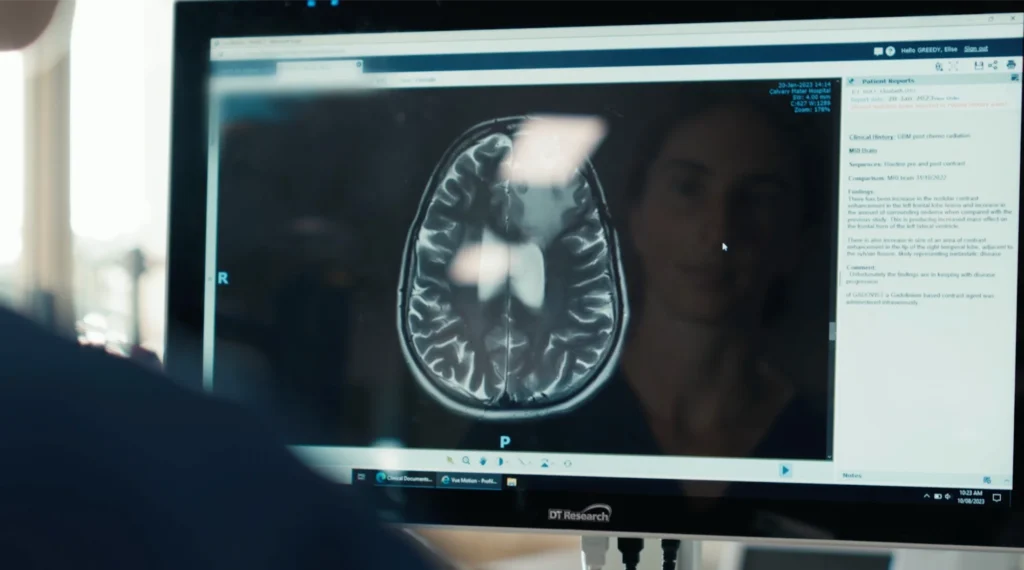
The Mark Hughes Foundation (MHF) has added to the extensive list of world-class brain cancer research projects that it’s currently supporting, awarding eight new innovation grants totalling $1.6 million to researchers throughout Australia.
Using funding secured in this year’s hugely successful NRL Beanie for Brain Cancer Round, MHF co-founder Mark Hughes says the goal is to encourage nationwide collaboration and help brain cancer scientists and clinicians to develop novel ideas in a relatively short timeframe.
“We’re incredibly proud to have some of Australia’s brightest and most passionate researchers thinking outside the square to solve the riddles of brain cancer,” he said. “My life is riding on it, as are so are many others.
“We can’t thank the Callander family, the NRL, Channel Nine and Fox Sports plus other media outlets, Lowes Australia and IGA Stores along with the wider community enough for the incredible support of our national beanie campaign.”
“To be able to turn our supporters simply buying a beanie into this level of research is something that I and the MHF team are very proud of.”
Three University of Newcastle researchers were successful at Wednesday night’s presentation event, including Professor Frances Kay-Lambkin who was later named the Hunter Medical Research Institute’s 2019 Researcher of the Year.
A leading mental health researcher, Professor Kay-Lambkin will lead a new project aimed at supporting families who have a loved-one diagnosed with brain cancer.
Associate Professor Paul Tooney will explore whether DNA repair inhibitors can lengthen the survival time for patients, focusing on new drugs that they hope can improve the current treatments.
Dr Mike Fay received funding for the development and translation of a blood-based diagnostic test for brain cancer that could help clinicians determine the most appropriate treatment regime.
“This is an exciting project being run in collaboration with the University of Queensland. We have some amazing, molecularly targeted radiation techniques available to us but, as clinicians, the problem is how to choose between all these treatments,” Dr Fay explained.
Dr Kimberly Kaufman, head of brain cancer research at Chris O’Brien Lifehouse and an Honorary Senior Research Fellow at the University of Sydney, is also working on a new blood test to monitor glioblastoma patients and detect tumour progression.
“Our proposal addresses an area of urgent clinical need for patients diagnosed with glioblastoma, the most common and aggressive form of brain cancer in adults,” Dr Kaufman said.
“There are no reliable methods for monitoring patients with this cancer, so clinicians can’t accurately tell whether a tumour is growing or responding to treatment. This means patients may be switched to a wait-and-see approach.
“This funding will go towards assessing blood samples that we’ve collected from patients at multiple times during their journey with glioblastoma, and hopefully we can eventually provide timely and accurate information about an individual’s tumour status.”
Dr Haibo Jiang from the University of Western Australia gained backing for a novel P.E.T tracer for glioblastoma imaging.
University of Sydney researcher Dr Eric Hau is studying DIPG, an incurable and inoperable cancer that arises in the brainstem of children, and compatriot Dr Kelly McKelvey received funding for project titled “Limos – killing brain cancer from within”. Dr McKelvey is also the Matt Callander Beanie for Brain Cancer HMRI Fellow, funded by the Mark Hughes Foundation.
Dr Dannielle Upton from the University of New South Wales received her first ever project grant to advance her investigations into new treatments for childhood brain cancer.
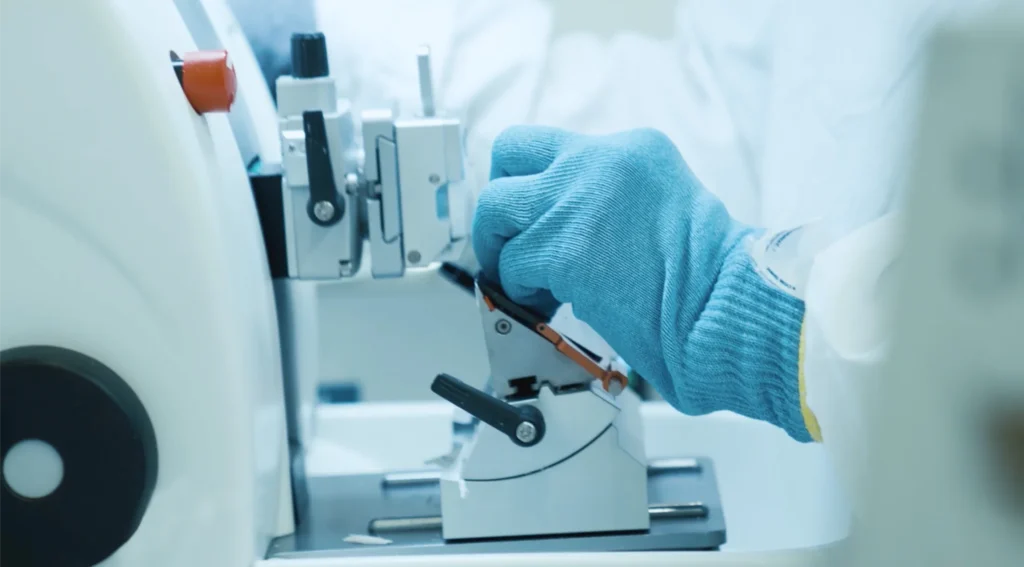
Researchers: Dr Elizabeth Fradgley
At the recent HMRI awards night three of MHF’s generous supporters handed out research grants: Earlier this year Charlie Sutton donated an incredible $100,000 and these funds will support Dr Elizabeth Fradgley who will research a systemic screening and referral process for Glioma patients and their caregivers.
The Man Shake’s Adam and Belinda MacDougall awarded Dr. Kathryn Skelding $100,000 to look at newtreatment strategies for treating aggressive braincancers. The Manshake have been amazing supportersof MHF over a number of years donating in total $250,000.
And in a very special moment an award was presented in memory of Olivia Addison. The 21yr olds dying wish was to raise $50,000 for brain cancer research. Her family have worked so hard and that total is now $100,000! Thanks to this fundraising, Dr Amanda Hudson will be researching the ability to re-purpose old drugs as new treatments for brain cancer.
MHF have this year invested in Collaborative research hubs in pre-clinical and genomic research based at the Kolling Institute and Hunter Medical Research Institute.
These platforms will accelerate the progress of new therapies for brain cancer from the laboratory to clinical trials by providing researchers with easy access to research capabilities they do not have. This will have the flow-on effect of strengthening collaborative research in brain cancer in Australia.
MHF also look forward to opening an Australia wide funding round late this year focused on research, innovation and collaboration – ensuring that the great minds across the country work together to change and improve outcomes for patients through research.
In other exciting news the Australian Brain Cancer Mission are currently reviewing all applications for research grants in which MHF contributed 2.5 millionover 5 years. We look forward to announcing thesuccessful researchers in the New Year as well.
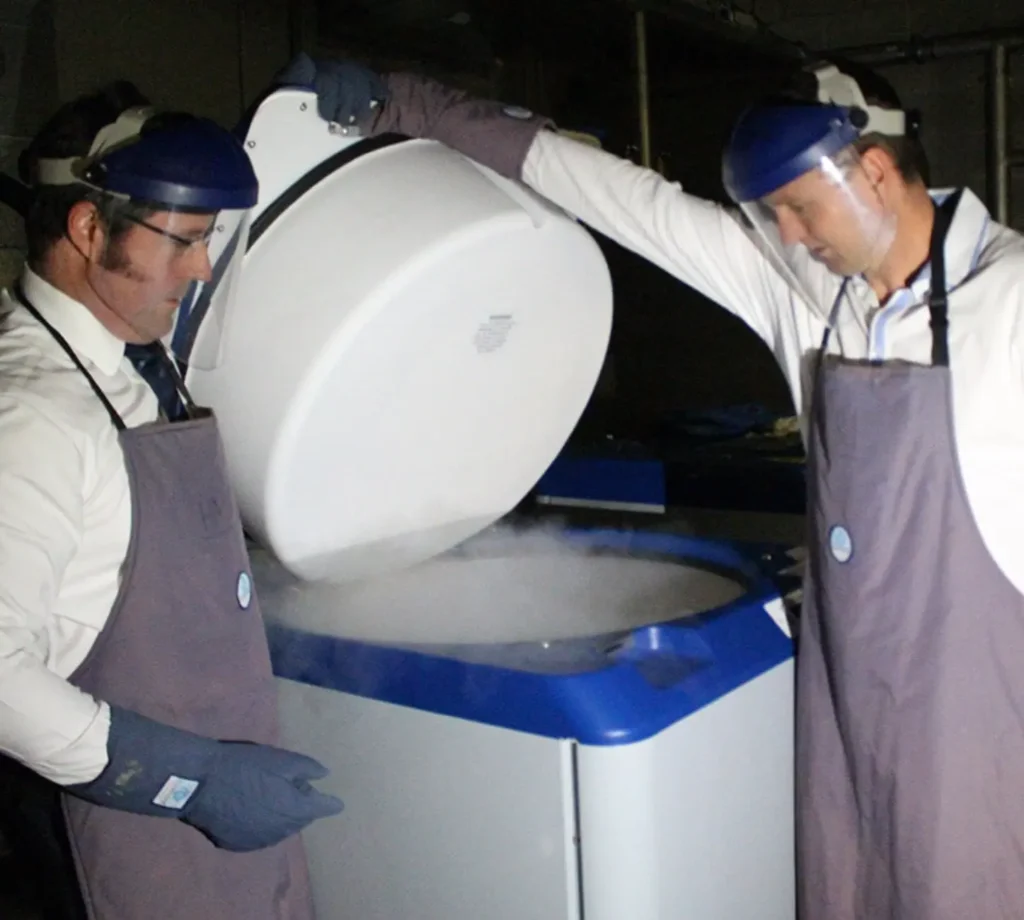
Researchers: Professor Rodney Scott, Dr Marjorie Walker
The Hunter Cancer Biobank (HCB), located at HMRI, was established in 2012 to meet the growing needs of local cancer research, and provides our local highly respected researchers with high quality tissues, free of charge, allowing them to conduct state of the art research into all types of cancer. The HCB collects a range of tumours from adult patients having cancer-related surgery in the Hunter New England region. Only excess tissue (that is not required for a patient’s diagnosis and treatment) is stored in the HCB; this tissue would otherwise be discarded. The HCB currently has over 3300 tumour samples.
Thanks to the establishment of the Mark Hughes Foundation now banks cancer and blood samples from every consenting patient and has built a comprehensive brain cancer Biobank.
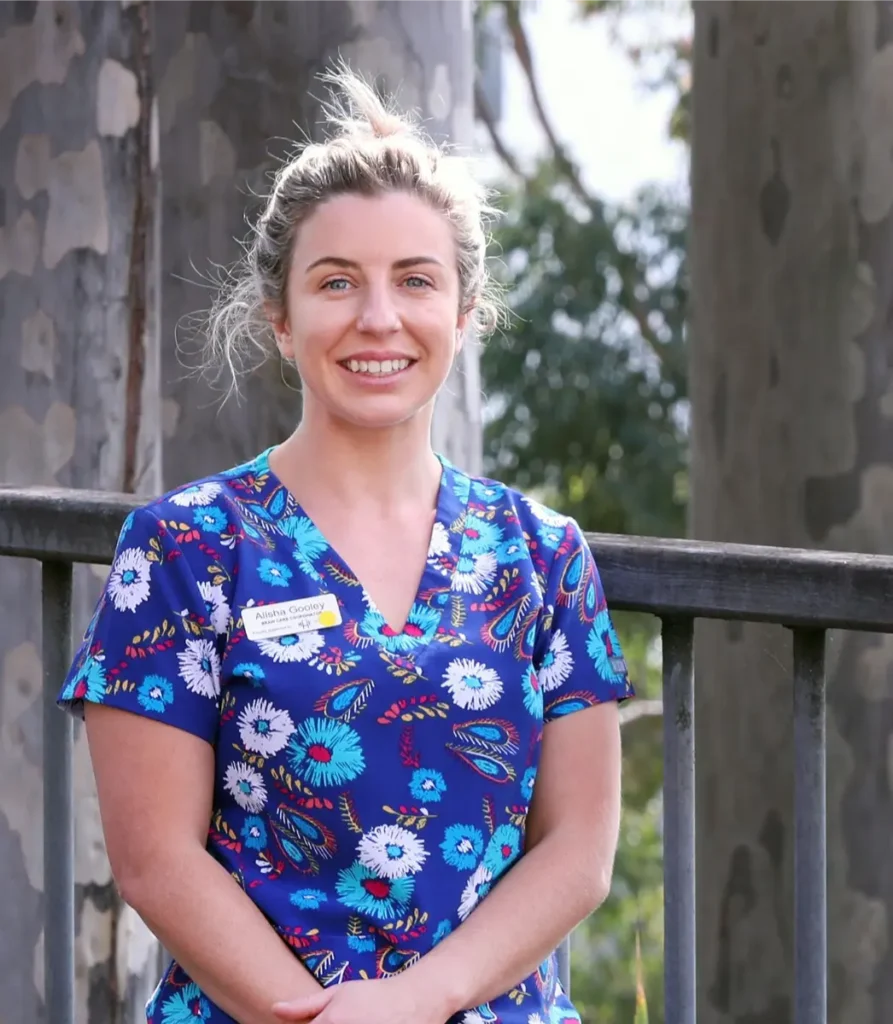
This project most importantly assists patients and their families with support through diagnosis, treatment, access to clinical trials, follow-up on discharge and end of life care. Jane Morrison was initially seconded to this role while recruitment took place.
Update:
This role is currently filled by Alisha Gooley as Sandy Nixon is on maternity leave.
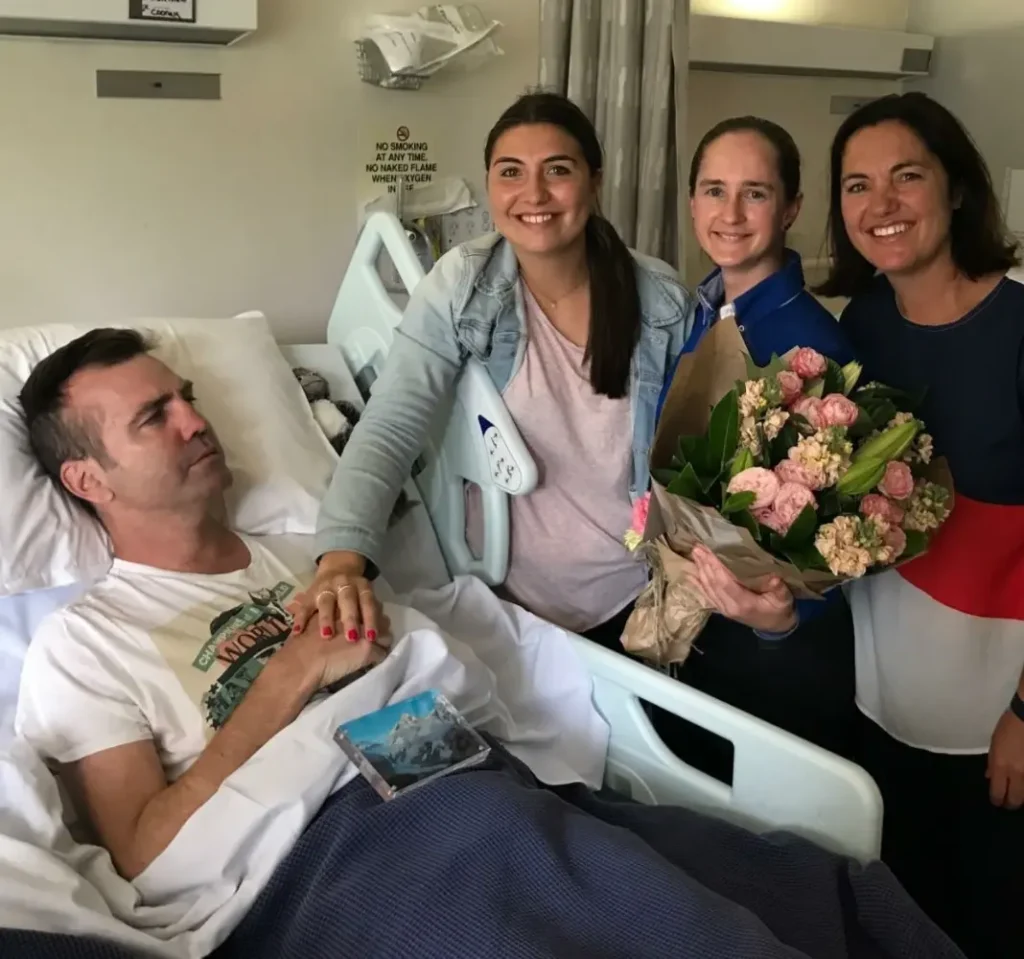
Sydney neuroscientist Dr Kelly McKelvey will study and optimise clinical treatment options for brain cancer patients.
Her three-year funding support came via the NRL’s Round 11 Beanie for Brain Cancer initiative in partnership with the Mark Hughes Foundation (MHF). It was presented at the recent Hunter Medical Research Institute (HMRI) Awards Night by Anne Callander and eldest daughter Madison.
Dr McKelvey is an immunology specialist with a background in neuroanatomy and pharmacology, enabling her to analyse the brain microenvironment in depth. Along with colleagues from the Sydney Neuro-Oncology Group and in collaboration with Hunter cancer researchers, she is specifically focused on high-grade brain cancers – including glioblastoma, which tragically claimed Matt’s life.

Researchers: Professor Rodney Scott, Dr Marjorie Walker
The Hunter Cancer Biobank (HCB), located at HMRI, was established in 2012 to meet the growing needs of local cancer research, and provides our local highly respected researchers with high quality tissues, free of charge, allowing them to conduct state of the art research into all types of cancer. The HCB collects a range of tumours from adult patients having cancer-related surgery in the Hunter New England region. Only excess tissue (that is not required for a patient’s diagnosis and treatment) is stored in the HCB; this tissue would otherwise be discarded. The HCB currently has over 3300 tumour samples.
Thanks to the establishment of the Mark Hughes Foundation now banks cancer and blood samples from every consenting patient and has built a comprehensive brain cancer Biobank.
Update:
There is an on-going commitment to collect samples (solid tissue, blood samples and other human tissues) that can be used in brain cancer research and the biobank will continue to collect and store samples as essential research infrastructure.
The MHF BCB staff are continually investigating options to add value to the types and quantities of tissue held within the biobank and ways to assist with supplying biospecimens for brain cancer research. New initiatives are implemented according to the capacity of the MFH BCB staff to adopt them and continue to provide the quality service to the existing initiatives and participants.
Now that the infrastructure is well embedded to routinely recruit and collect biospecimens from brain cancer patients according to a standard protocol, we are expanding our service provision to the research community to assist with patient recruitment and biospecimen collection for protocol driven projects which require specific processing protocols (such as GBM 001 and GBM 002 in Table 4 above). This will augment our current biobank services and support more projects that utilise the solid tissue and blood samples for research. Without the infrastructure of the MHF BCB it would not be possible to support these protocol driven collections.
Four research projects are currently utilising the MHF Biobank samples.
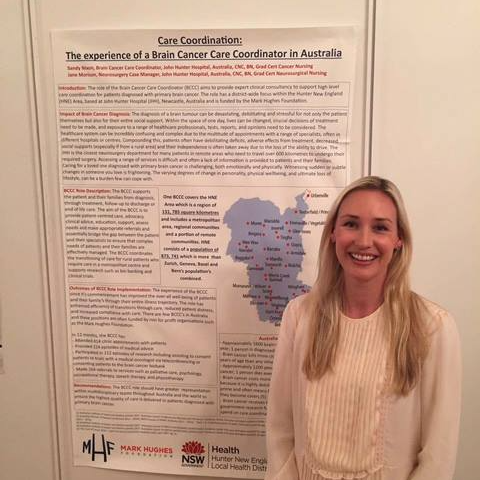
This project most importantly assists patients and their families with support through diagnosis, treatment, access to clinical trials, follow-up on discharge and end of life care. Jane Morrison was initially seconded to this role while recruitment took place.
Update:
Sandy Nixon took on this role during 2016.

Brain Cancer Biobanking Australia is committed to supporting research performed by clinicians and scientists working in both the paediatric and adult brain cancer fields. The consortium has been established under the umbrella of the Cooperative Trials Group for Neuro-Oncology (COGNO) with the goal of accelerating brain cancer research and the translation of that research into improved outcomes in patient care.

Pia Laegdsgaard – 8th COGNO Annual Scientific Meeting, Brisbane 22-24 October 2015
Dr. Adrian Lee (SNOG) – 8th COGNO Annual Scientific Meeting, Brisbane 22-24 October 2015
Dr. Viive Howell – Inaugural International Cancer Immunotherapy Conference, New York, 16-19 September 2015
DR. Mike Fay – American Society for Therapeutic Radiation Oncology Meeting, San Antonio, Texas, 18-21 October 2015
Dr. Craig Gedye – 8th COGNO Annual Scientific Meeting, Brisbane, 22-24 October 2015
Marina Kastelan- 20th Annual Society for Neuro-Oncology Annual Scientific Meeting and Education Day, San Antonio, Texas, 19-22 November 2015
World Federation of Neuro-Oncology Societies Conference – Sandy Nixon
Sandy travelled to Zurich to present a poster outlining the best practice model of care-coordination funded by the MHF through Hunter New England Health District.
Update:
10th COGNO Annual Scientific Meeting
– Kaye Duffy
– Alisha Gooley
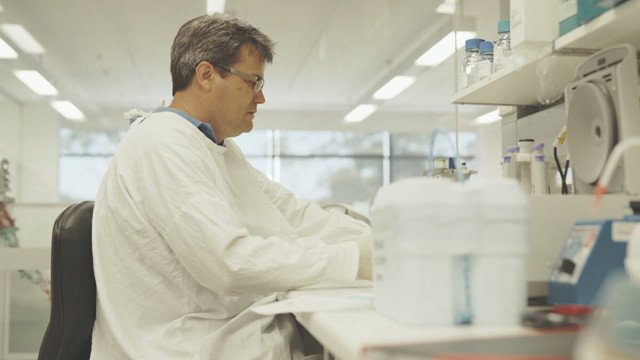
Funded by the Mark Hughes Foundation (MHF), nationally renowned radiation oncologist Dr Mike Fay has been named the inaugural recipient of a three-year HMRI Mid-Career Research Fellowship dedicated to brain cancer.
As a clinical expert in advanced imaging for brain tumours, Dr Fay’s research forte is developing scanning markers and targeted therapies for cancer cells that resist current treatments.
Online Updates on Mike’s research:
Radiation ‘warhead’ for brain cancer
Brain cancer treatment extending survival

Championed by the Robert Connor Dawes Foundation in collaboration with ANZCHOG this project will ensure that every child in Australia and New Zealand has the opportunity to rapidly access the best and most accurate diagnostic information about their brain tumour to inform their treatment pathways and optimise their chance of survival. It will also build capacity within Australasia to future-proof our ability to participate in research (including clinical trials) that stratify patients by molecular profiling.

The ultimate goal of this project is to develop a new treatment for glioblastoma multiforme that improves patient survival, without increasing side effects and toxicities associated with treatment. Positive results from this project could lead to clinical trials of our new drugs in glioblastoma patients. As BAALC-targeting drugs have not been administered to humans, Phase I safety trials would be required prior to the commencement of Phase II and III clinical trials.
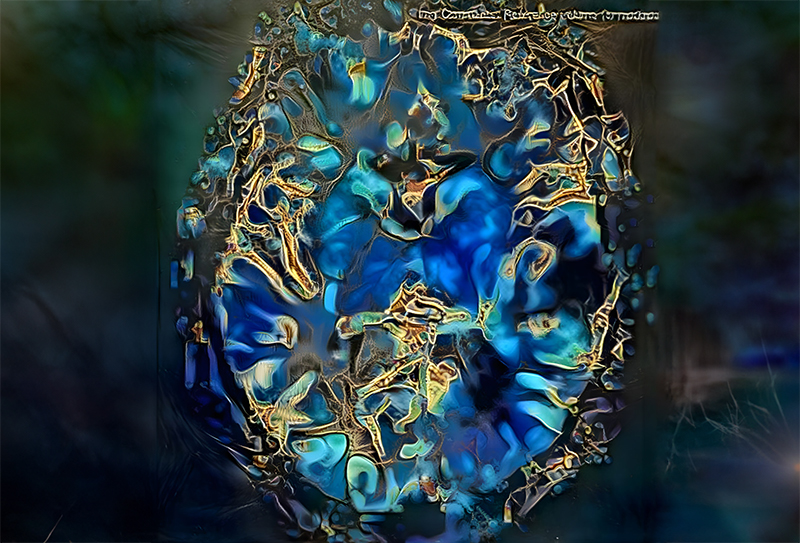
The aim of this exploratory study will be to identify unequivocal rare genetic variants that are associated with disease and to determine the inheritance pattern of the offending variant. This will be achieved in performing exome sequencing (examining all of the coding regions in the genome in a single assay) on a selection of DNA samples derived from patients with a brain tumour and their parents.

A state of the art brain cancer biobank incorporated into the existing structure of Hunter Cancer Biobank (HCB), located at HMRI, to provide open access to a broad range of quality brain cancer tissues and related blood samples. Researchers will be able to link specimens and clinical data allowing researchers to remotely analyse tissues.
To study individual patient’s cancers, they must be carefully collected at the time of surgery. Donating cancer samples at the time of surgery is a proactive and valuable act that every patient can make to improve brain cancer research. This is called ‘biobanking’. A Biobank is a collection of human tissues with related clinical data.
The Hunter Cancer Biobank (HCB) located at HMRI, was established in 2012 to meet the growing needs of local cancer research and provide our local highly respected researchers with high quality tissues, free of charge, allowing them to conduct research into all types of cancers. Only excess tissue that is not required for a patient’s diagnosis and treatment is stored in the HCB; this tissue would otherwise be discarded. HCB currently has over 3300 tumour samples and with the help of MHF they hope to bank cancer and blood samples from every consenting patient to build a comprehensive brain cancer Biobank.
Rapid scientific advances now allow detection of tiny traces of patient’s cancers within blood. We will maximise biobanking for brain cancer patients by also requesting consent to bank patients’ blood samples at relevant times during their cancer surgery and treatment; E.g. before, during and after surgery, radiation and chemotherapy treatments and in follow-up.
The establishment of the Mark Hughes Foundation Brain Cancer Biobank will allow researchers in the Hunter New England region, Sydney, New South Wales and Australia to address a multitude of questions related to brain cancer, especially questions that could not be addressed without such a valuable research resource.
Thank you to each person and business who has supported MHF and helped us bring this state-of-the-art cancer research resource to the Hunter New England Area.
In addition, we are delighted to announce that John Hunter Hospital has appointed the region’s first Care Coordination Nurse for people with brain cancer under a three-year funding arrangement with the Mark Hughes Foundation (MHF) to provide a vital link between health staff, patients and medical researchers.
Nurse Jane Morison, a neurosurgical case manager at John Hunter Hospital, will work in the new role for six months while a full-time applicant is recruited. She will provide support to people receiving care at the John Hunter and Calvary Mater Newcastle hospitals. This is a momentous achievement for the Mark Hughes Foundation! The Biobank and the Care Coordinator Nurse are both exciting achievements the MHF have made in their first two years!
We have big plans for the future to continue funding research, studies and clinical trials. Help us achieve the rest by your continued support and donations.
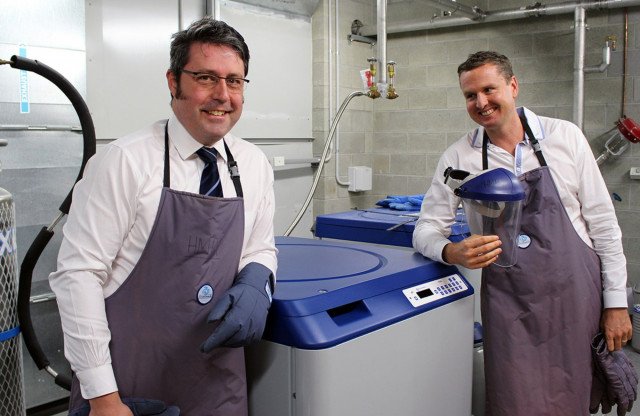
Researchers: Professor Rodney Scott, Dr Marjorie Walker
The Hunter Cancer Biobank (HCB), located at HMRI, was established in 2012 to meet the growing needs of local cancer research, and provides our local highly respected researchers with high quality tissues, free of charge, allowing them to conduct state of the art research into all types of cancer. The HCB collects a range of tumours from adult patients having cancer-related surgery in the Hunter New England region. Only excess tissue (that is not required for a patient’s diagnosis and treatment) is stored in the HCB; this tissue would otherwise be discarded. The HCB currently has over 3300 tumour samples.
Thanks to the establishment of the Mark Hughes Foundation now banks cancer and blood samples from every consenting patient and has built a comprehensive brain cancer Biobank.
Update:
The first whole brain donation was received late in the year to the Bio-bank.

This project most importantly assists patients and their families with support through diagnosis, treatment, access to clinical trials, follow-up on discharge and end of life care. Jane Morrison was initially seconded to this role while recruitment took place.
Update:
Sandy Nixon took on this role during 2016.
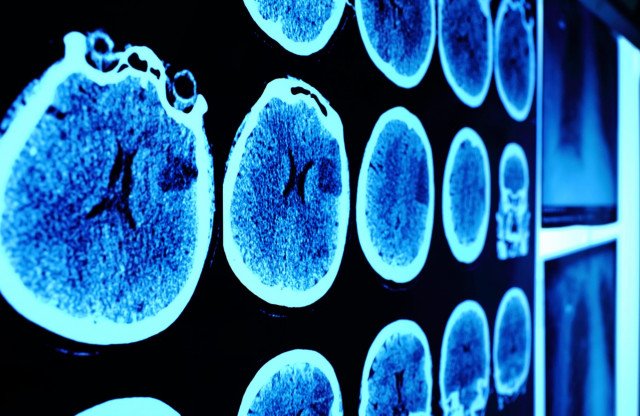
This is a pilot study to test whether serum levels of EphA2 can predict disease progression in GBM patients. We await news on this projects progression soon.

Researchers: Professor Rodney Scott, Dr Craig Gedye, Dr Marjorie Walker
The Hunter Cancer Biobank (HCB), located at HMRI, was established in 2012 to meet the growing needs of local cancer research, and provides our local highly respected researchers with high quality tissues, free of charge, allowing them to conduct state of the art research into all types of cancer. The HCB collects a range of tumours from adult patients having cancer-related surgery in the Hunter New England region. Only excess tissue (that is not required for a patient’s diagnosis and treatment) is stored in the HCB; this tissue would otherwise be discarded. The HCB currently has over 3300 tumour samples.
Thanks to the establishment of the Mark Hughes Foundation now banks cancer and blood samples from every consenting patient and has built a comprehensive brain cancer Biobank.

Pia Laegdsgaard – 8th COGNO Annual Scientific Meeting, Brisbane 22-24 October 2015
Dr. Adrian Lee (SNOG) – 8th COGNO Annual Scientific Meeting, Brisbane 22-24 October 2015
Dr. Viive Howell – Inaugural International Cancer Immunotherapy Conference, New York, 16-19 September 2015
DR. Mike Fay – American Society for Therapeutic Radiation Oncology Meeting, San Antonio, Texas, 18-21 October 2015
Dr. Craig Gedye – 8th COGNO Annual Scientific Meeting, Brisbane, 22-24 October 2015
Marina Kastelan- 20th Annual Society for Neuro-Oncology Annual Scientific Meeting and Education Day, San Antonio, Texas, 19-22 November 2015
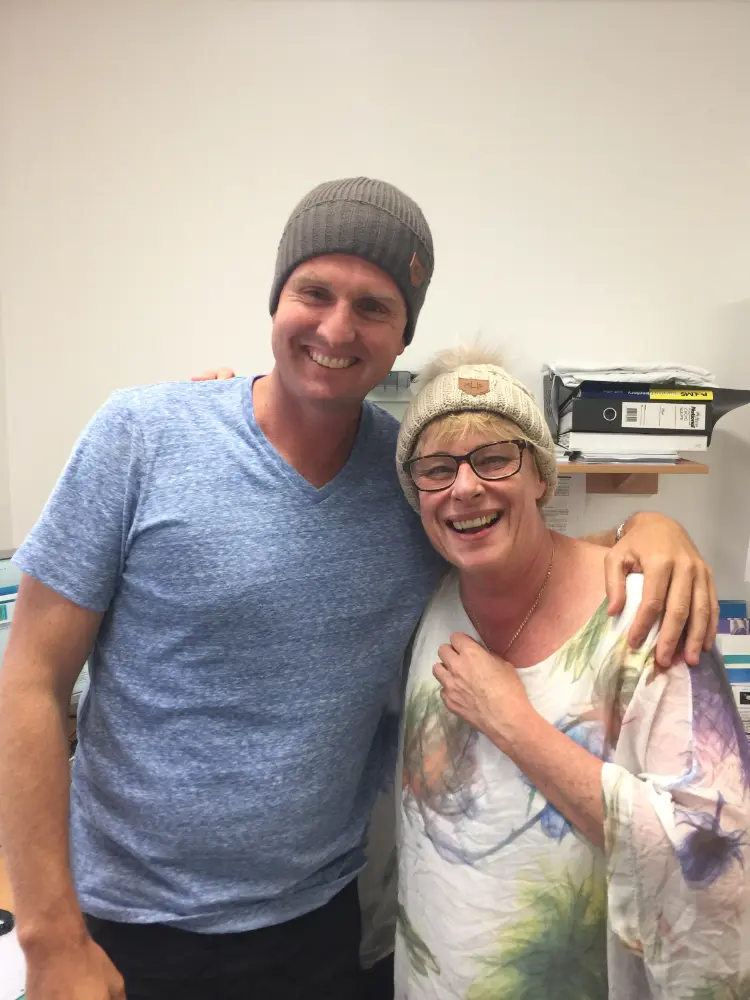
The aim of this project is that pathways enriched with genetic and genomic alterations will provide information on the differences between primary and recurrent IDH mutated Gliomas and uncover potential new therapeutic targets or strategies for better management strategies for recurrent tumours which are relatively refractory to current treatments.
Update:
Findings so far will form the foundations for the development of new tests to monitor patients and new therapies for the treatment of this cancer. Some of the genes / proteins identified may be developed into robust blood tests that can then be trialled prospectively to determine their ability to accurately monitor tumour burden or recurrence. Other genes / proteins will be investigated by functional studies to assess the impact of changing the levels of these specific factors. This will determine whether tumour behaviour / growth can be altered by normalising these factors such providing a rational basis for further work to develop new therapies in matched IDH-Wild type. This project is ongoing.
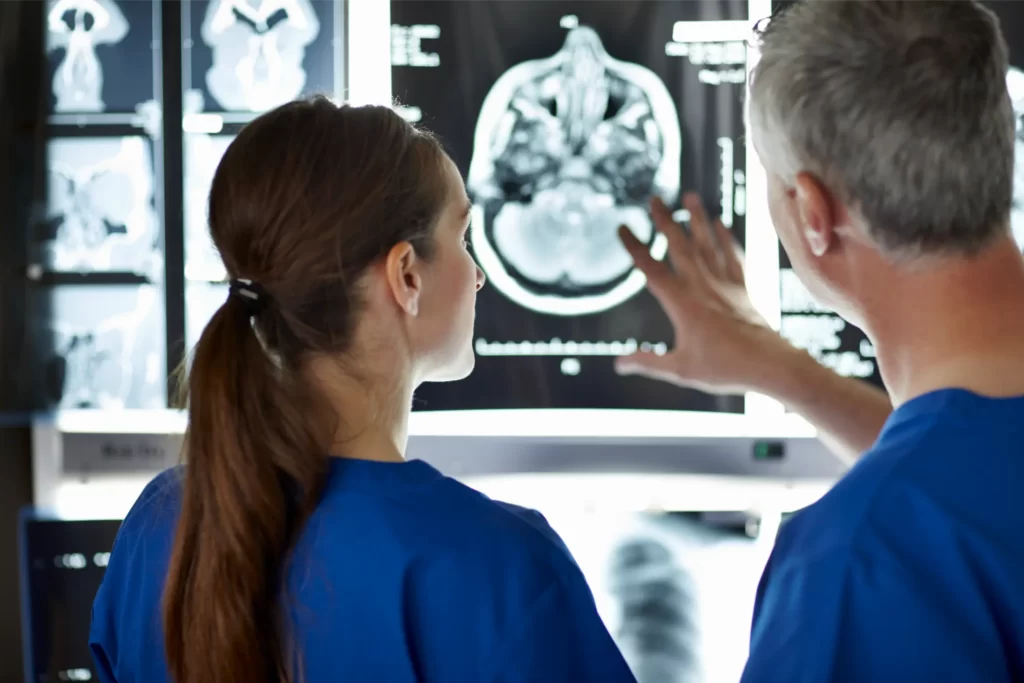
This project is a sub-component of “Understanding Complexity and Heterogeneity in Cancer Biology and Treatment” study. The aim of this particular study is to ‘clear’ and image brain tumour samples from the Hunter Cancer Biobank (HCB) in 3D microscopic resolution for the first time using the CLARITY procedure and lightsheet microscopy.
By examining the structural and molecular signatures of tumours in 3D, we can open brand new avenues in cancer research by enabling a better understanding of unappreciated intercellular relationships in the tumour microenvironment not currently understood from traditional, thin ‘2D’ sections.
Update:
The Virtual Biobank has now been released. The hope is to add brain cancer samples to this growing catalogue as soon as they become available.
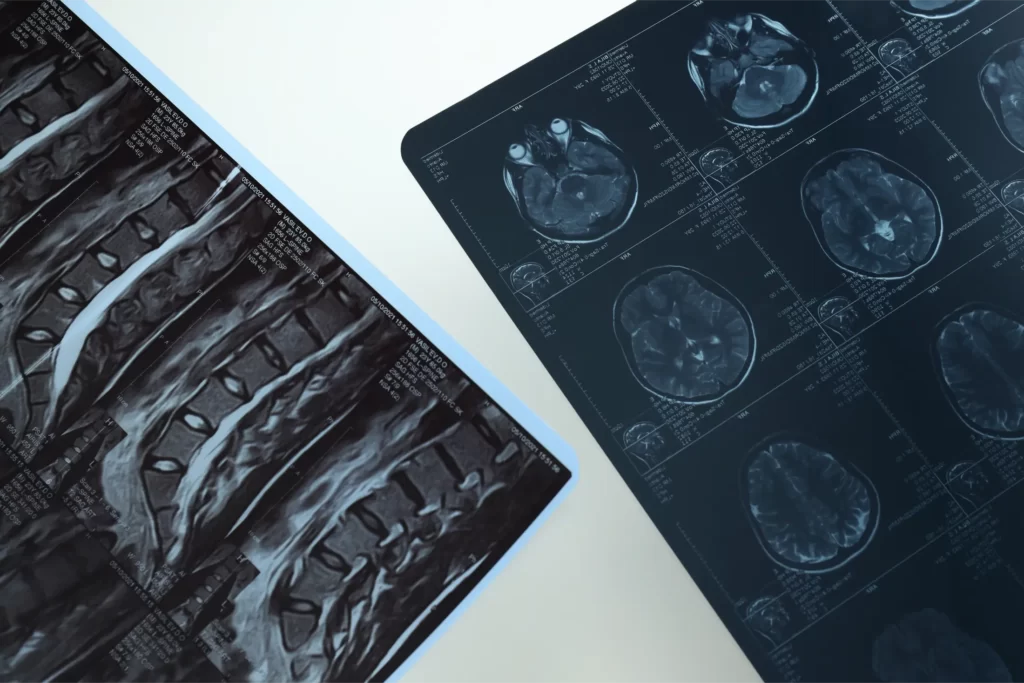
The aim of this project is to use a combination of existing and novel clinical blood tests to predict which patients with GBM will suffer severe toxic side-effects when treated with the Stupp protocol. All of the tests we propose have been used for predicting patient outcomes in other treatments and other diseases, but this is the first time they will be combined and applied to treatment for GBM.
Update:
Patient recruitment continues for this project. The current project will provide a biomarker discovery clinical data set.
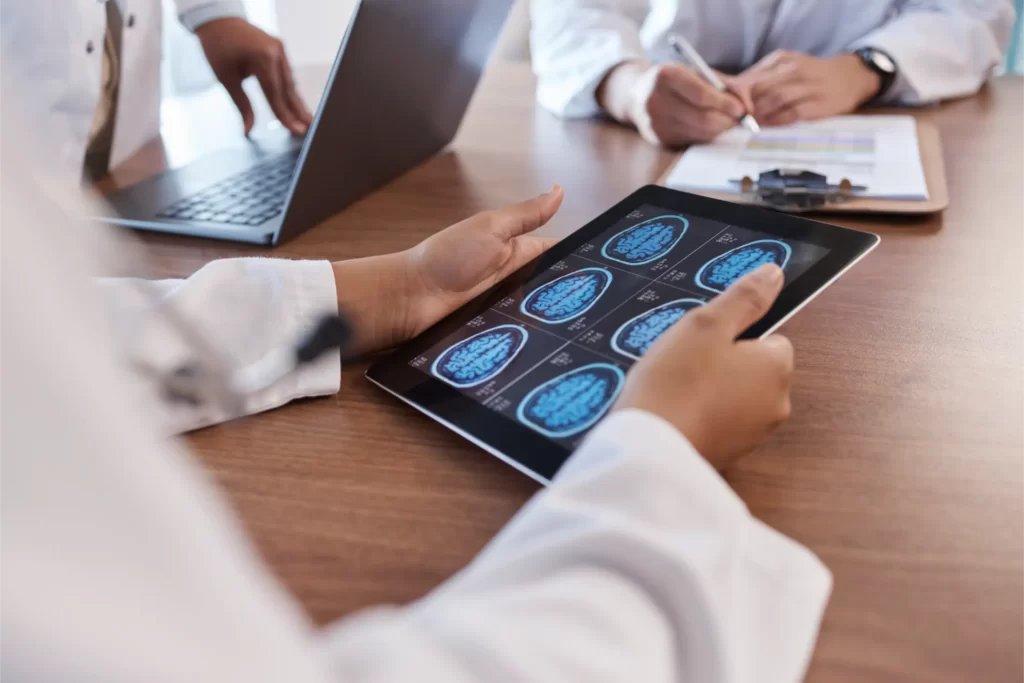
The ultimate goal of this project is to develop a new treatment for glioblastoma multiforme that improves patient survival, without increasing side effects and toxicities associated with treatment.
Update:
The next steps for this work are to further examine the new BAALC-targeting drugs that we have identified, so that we can identify the best BAALC-targeting drug to be moved into the clinic.
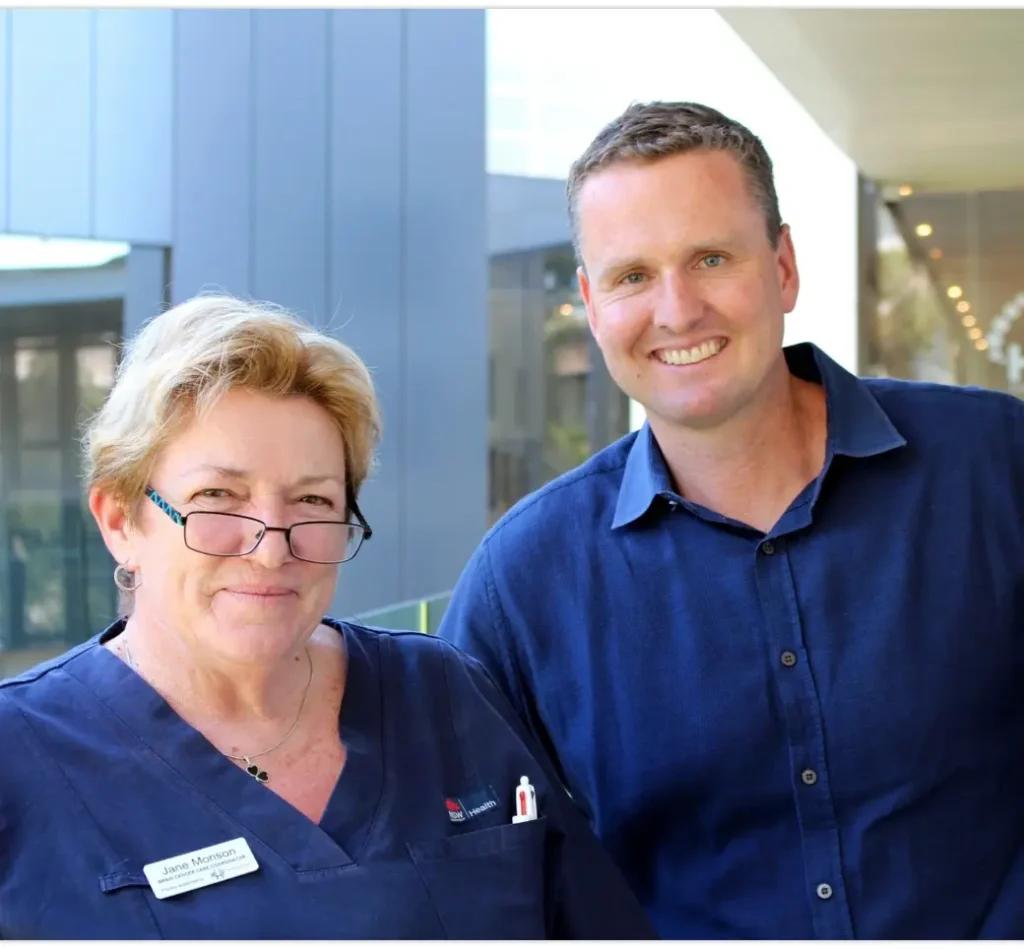
This project most importantly assists patients and their families with support through diagnosis, treatment, access to clinical trials, follow-up on discharge and end of life care. Jane Morrison was initially seconded to this role while recruitment took place.